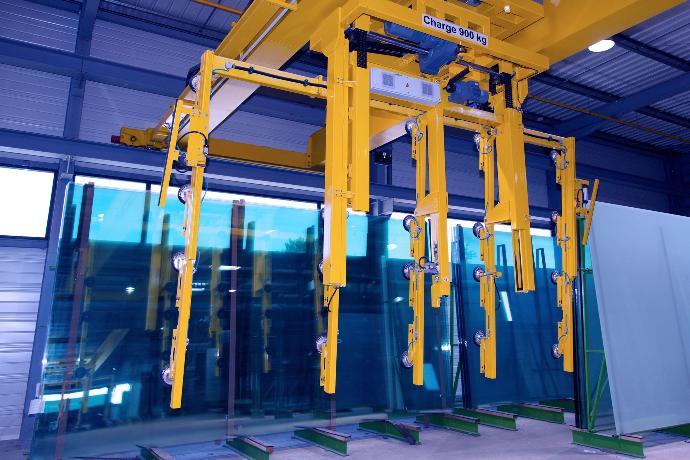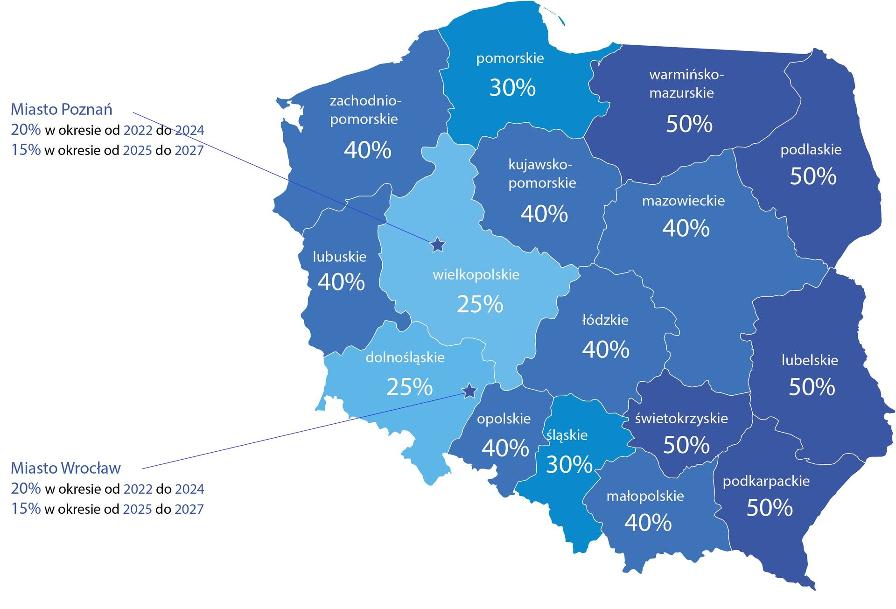How much?
50 mln €
Maximum grant
amount
Percentage?
80%
Maximum level of co-financing (R&D)
Budget?
6,67 mld
Maximum contest
budget
When?
12.04.23
Submission final
date
Basic information.
A project can consist of up to seven different modules. Modules within the project can be implemented in a linear way (implementation of a given module is a continuation of another module) or non-linear (modules implemented independently). Support in the SMART Path may be granted for the implementation of projects covering:
-
conducting research and development works,
-
wdrożenie wyników prac B+R,
-
development of research infrastructure,
-
digital or green transformation of the enterprise
-
and internationalization of the enterprise and raising staff competences.

Beneficiaries
-
micro companies,
-
small companies,
-
medium companies,
-
big companies.

Subject of financing
• conducting research and development works,
• implementation of the results of R&D works,
• expansion of research infrastructure,
• digital or green transformation of the enterprise,
• internationalization of the enterprise,
• improving staff competences.

Financing terms
In the case of SMEs, each project must include: an R&D module or an R&D implementation module; in the case of large companies, an obligatory R&D work module. The result of the work should be a product or process innovation, the projects must be in line with the National Smart Specializations.

Settlement rates
Implementation of product or process innovations.
Support levels (Implementation)

Bonus for SMEs:
+ 10 % for medium companies,
+ 20 % dla for micro and small companies.
Bonus +10% for areas in regions covered by support from the Just Transition Fund, i.e., voivodeships:
Lodz, Silesia, Lower Silesia, Lesser Poland and Lublin (the bonus will become effective after the EC announcement).
In the capital Warsaw region, the maximum intensity of regional aid calculated as the ratio of the value of regional aid, expressed in the gross subsidy equivalent, to the costs eligible for this aid, subject to §4 and §6, is:
-
25% for areas belonging to the communes of Baranów, Blonie, Góra Kalwaria, Grodzisk Mazowiecki, Jaktorów, Kampinos, Leoncin, Leszno, Nasielsk, Prażmów, Tarczyn, Zakroczym and Żabia Wola;
-
35% for areas belonging to the communes of Dabrówka, Dobre, Jadów, Kałuszyn, Kołbiel, Latowicz, Mrozy, Osieck, Serock, Siennica, Sobienie-Jeziory, Strachówka and Tłuszcz.
Base intensity from 01/01/2025 will be reduced by 5%.
